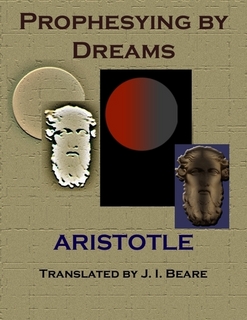
by Aristotle (Written 350 BCE) Part 1 As to the divination which takes place in sleep, and is said to be based on dreams, we cannot lightly either dismiss it with contempt or give it implicit confidence. The fact that all persons, or many, suppose dreams to possess a special significance, tends to inspire us with belief in it [such divination], as founded on the testimony of experience; and indeed that divination in dreams should, as regards some subjects, be genuine, is not incredible, for it has a show of reason; from which one might form a like opinion also respecting all other dreams. Yet the fact of our seeing no probable cause to account for such divination tends to inspire us with distrust. For, […] Read More


